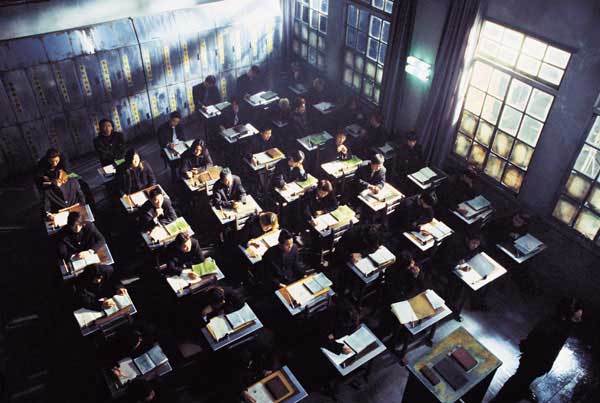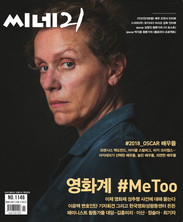한국에서 사용되는 영화 관련 특별 용어 중 “카메라/camera”나 “애니메이션/animation” 또는 “세트/set”와 같이 영어에 뿌리를 둔 것이 많다는 것은 놀랍지 않을 것이다. 물론, 다른 언어에서 유래된 용어도 있다. 프랑스어에서 온 “미장센/mise-en-scene”이나 “몽타주/montage”, 또는 “영화”와 같이 한자에서 나온 여러 단어도 있다. 고유어든 외래어든, 단어마다 자기만의 역사가 있어 언제 어떤 경로로 해서 특정 물건이나 개념이 한국에 받아들여졌는지 반영하게 된다.
그런데 시간이 지남에 따라 단어의 뜻이 때로는 바뀌거나 새로운 함축적 의미를 담게 되며, 서로 다른 언어의 단어들이 처음에는 같은 뜻으로 시작했다가 나중에 다른 것을 뜻하게 되는 일은 꽤 흔하다. 한국어와 영어의 몇몇 영화 관련 단어들의 경우에도 이런 일이 일어난 것 같다. 한국에 거의 8년째 산 사람으로서, 영어로 말할 때 종종 혼란에 빠져 무의식 중에 한국어 의미를 채용하는 것을 발견하게 된다. 이 단어들 때문에 고생한 사람이 나 혼자가 아니라는 생각에, 여기서 몇개 단어를 얘기해볼까 한다.
시나리오/scenario. 몇년 전, <스크린 인터내셔널>에 <화산고>에 대한 기사를 쓰는데, 영화의 원래 컨셉이 ‘영진위 시나리오 공모전’에 출품됐던 것에서 나왔다고 썼다. 얼마 지나지 않아 런던에 있는 편집자가 “scenario contest”(시나리오 콘테스트)라면 정확히 무슨 뜻으로 쓴 거냐고 분명하게 말해달라는 이메일을 보내왔다. 어떻게 답변했는지 기억이 안 나지만, 결국 그는 전화를 걸어 또다시 명확하게 밝혀달라고 요청했다. 나중에서야 ‘시나리오’에 “scenario”란 말을 쓰지 말았어야 한다는 것을 깨달았다. 이전에 “scenario”란 말이 한국어와 영어에 모두 같은 뜻으로 통하긴 했었지만, 영어에서는 옛 의미가 소멸해가고 있으며 요즘에는 주로 영화의 시놉시스나 대략적인 개요를 말하는 데 사용된다. 대본 전체를 일컫는 데 사용되는 말은 “screenplay”(스크린플레이) 또는 “script”(스크립트)이다. 학술적으로 말하자면 “scenario”가 틀린 것은 아니지만, 혼란을 일으킬 가능성이 있는 단어다.
크랭크인-업/crank in-up. 한국에 처음 왔을 때 이 용어를 듣고서 무슨 뜻인지 전혀 알 수가 없었다. 처음엔 그냥 내 영화교육의 부족 탓이려니 했지만, 보니까 이 단어들은 영어에서 거의 사용되지 않는 것 같다. 영화인 사전을 두권 갖고 있지만, 둘 중 어느 것에도 이 용어가 실려 있지 않다. <버라이어티> 데이터베이스의 2005년 뉴스기사 수천개를 검색해도 “crank-in”이란 단어는 딱 한번밖에 나타나지 않으며- 수상하게도 일본에 사는 기자가 쓴 것이다(이 단어가 일어를 통해서 한국어에 들어왔을지도?). 마찬가지로 구글로 “crank-in film”을 검색하면 한국 영화사들의 영문 홈페이지들이 나온다. 이것보다 일반적으로 현대 영어에서 쓰이는 여러 가지 표현 중에 “to open production” 또는 “to wrap production”이 있다. 물론 “crank-in”도 학술적으로 또 말하자면 틀린 것은 아니다.
영화에 관한 대화에서 종종 쓰이는 ‘콩글리시’의 고전적인 예가 또 두 가지 있다. “마니아”란 단어는 영어에서 유래됐겠지만, 그 뜻은 영어 단어 “fan”에 더 가깝다(“Mania”나 “maniac”은 ‘마니아’와 꼭 같은 뜻이라 할 수 없다). “탤런트”란 말도 마찬가지 경우로, 영어 단어 “entertainer”가 “talent”보다 한국어에서 사용되는 뜻에 더 가깝다.
내가 놓친 또 다른 예들도 있을 것이다. 친애하는 독자 여러분, 갑자기 이렇게 학자연하는 모습으로 돌변한 것을 용서하길 바란다. 그리고 절대로 이 용어들이 한국어에서 바뀌어야 한다는 제안을 하고자 하는 것은 아니다. 어쨌거나 점점 많은 영화인들이 해외로 여행을 하고 영어로 소통하게 됨에 따라, 이 단어들의 묘한 진화에 주의를 기울이고 싶을지도 모른다.
It's perhaps not surprising that many of the special film-related terms used by people in Korea, such as "카메라/camera", "애니메이션/animation", or "세트/set", have their roots in English. Of course, there are terms that originated in other languages as well, such as "미장센/mise-en-scene" and "몽타주/montage" from French, or the many words such as "영화" which are a product of Chinese characters. Each word, either native or imported, has its own history that reflects when and through what paths a certain object or concept came to be accepted in Korea.
Yet the meaning of words sometimes change or pick up new connotations over time, and it's quite common to have words from two different languages start off meaning the same thing, but eventually end up meaning something different. This seems to have happened to a few film-related words in Korean and English. As someone who's been living in Korea for close to eight years, I've often found myself getting confused, and unconsciously adopting the Korean meaning when I speak in English. I suspect that I'm not the only one who's had trouble with these words, so I thought I'd discuss a few of them here.
시나리오 / scenario ? A few years ago I was writing a piece about Volcano High for Screen International, and I wrote that the original idea for the film came from a submission to the KOFIC Scenario Contest. Not long after, I got an email from my editor in London asking me to clarify exactly what I meant by "scenario contest". I forget how I answered, but eventually he had to call me up on the phone to ask for clarification again. I only realized later that I shouldn't have been using the word "scenario" for 시나리오. Although scenario used to mean the same thing in both languages, in English the old meaning is dying out, and these days it's mostly used to mean a synopsis or rough outline of a film's story. "Screenplay" or "script" are the words used to refer to an entire manuscript. "Scenario" is not technically wrong, but the word has the potential to create confusion.
크랭크인-업 / crank in-up ? When I first came to Korea, I heard this term and I had no idea what it meant. At first I just assumed that my film education was lacking, but it seems that these words are hardly ever used in English. I own two filmmakers' dictionaries, and neither one lists the term. A search through thousands of news articles from 2005 in the Variety database turns up only one instance of the word "crank-in" ? suspiciously enough, from a reporter who lives in Japan (perhaps the word entered Korean through Japanese?). Similarly, if you do a google search for "crank-in film", you end up getting the English-language websites of Korean film companies. "To open production" or "to wrap production" are some of the many phrases more commonly used in contemporary English, though again, "crank-in" is not technically wrong.
There are also two classic cases of "Konglish" that are often used in conversations about movies. The word "마니아" must have originated from English, but its meaning is closer to the English word "fan" ("mania" or "maniac" aren't quite the same). The same is true of "탤런트" ? the English word "entertainer" is closer to the way it is used in Korean than "talent".
There may be other examples that I've missed. Dear readers, please forgive me for suddenly turning so pedantic, and it's surely not my intention to suggest that these words should be changed in Korean. Still, as more and more filmmakers find themselves traveling abroad and communicating in English, they might want to take note of the odd development of these words.


